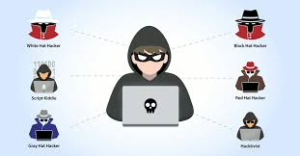The onset of the pandemic brought about a myriad of new habits—think Zoom gatherings and the rise of all-day loungewear. Alongside these changes, our banking practices underwent a significant transformation. For those who hadn’t yet embraced online banking prior to the lockdown, it likely became an integral part of their routine shortly after that. By 2022, data from Statista indicated that almost two-thirds of Americans were managing their finances digitally, whether through smartphones or computers. Nevertheless, concerns regarding security and fraud protection remain paramount for savers, particularly when utilizing online banks or savings accounts. A 2021 survey conducted by Raisin revealed that respondents prioritized safety over having no fees or attractive interest rates. Thankfully, banks and credit unions recognize this priority and are heavily investing in security measures. Today’s online banking landscape is primarily viewed as secure due to advanced technology and sophisticated monitoring systems in place.

Let’s examine how financial institutions are safeguarding customers’ financial data and explore some strategies for enhancing your own safety while banking online.
How Banks Ensure Online Account Security
Financial institutions and platforms like Raisin employ various strategies to protect their clients’ online accounts effectively. Here are some prevalent methods:
– Multi-Factor Authentication: If you’ve ever logged into your bank account and been prompted to enter both your password and PIN, you’ve encountered multi-factor authentication (MFA). This widely-used method adds an extra layer of security by requiring users to verify their identity through two or more forms of identification—this could include a password, PIN, token code, or answers to security questions such as “What is your mother’s maiden name?” or “What was the mascot of your high school?”

Fraud Detection: Numerous financial institutions, including banks, credit unions, and online platforms like Raisin, employ fraud detection services to safeguard their customers. This process typically involves a system that identifies any suspicious account activities. When such activity is detected, the institution will reach out to the account holder for verification. During this verification process, the financial entity may choose to temporarily block card transactions, limit access to online accounts, or halt online payments entirely. If you find yourself in this situation, you can be confident that your financial institution will act swiftly to restore your access and address the concern.
Network Protection: Firewalls serve as a crucial security layer designed to prevent unauthorized traffic or connections from potentially harmful sources. In simpler terms, they act as barriers against hackers and malware attempting to breach your bank or credit union’s network. For instance, Raisin utilizes advanced web application firewall technologies that offer robust internet protection for our customers and their sensitive information against threats such as botnets and denial of service attacks (DDoS).
Data Security: Cybercriminals often attempt to capture account numbers, passwords, and other private data. To shield your sensitive information from being compromised, financial organizations rely on specialized end-to-end encryption software. This technology transforms a customer’s data into an unreadable format before it is sent over the Internet. As a result, the information remains secure during transmission and can only be decrypted by the financial institution upon arrival.

Automatic Session Termination: If you momentarily step away from your device while engaged in an online transaction, don’t be alarmed if your bank logs you out automatically after a specific duration of inactivity. This feature serves as an additional measure to thwart unauthorized access to your online accounts.
Potential Online Banking Threats: While online banking is generally regarded as safe and secure, it’s essential to remain aware of certain risks associated with it. One prevalent threat is phishing scams, which can manifest in various forms. They often arrive through text messages or emails containing deceptive content aimed at tricking users into revealing personal information.
In the digital age, safeguarding your online savings accounts is a shared responsibility between financial institutions and their customers. While banks and digital savings platforms implement various security measures, savers can take proactive steps to enhance their account safety. One crucial tip is to avoid conducting banking activities over public WiFi networks. When you’re on the go, always opt for a secured network that requires a password for access. If you find yourself in a situation where only public WiFi is available, it’s wise to postpone any banking transactions until you can connect to a secure network.

Choosing a robust password is another essential measure. Aim for passwords that are lengthy and complex, incorporating an unpredictable combination of uppercase and lowercase letters, numbers, and special characters. Furthermore, selecting the right bank or credit union can significantly impact your account’s security. Before committing your savings, investigate how much emphasis the institution places on security features and tools—information that can usually be found on their website or by contacting your local branch directly.
Look out for specific designations like SOC 2; these certifications indicate that the institution has implemented necessary information security measures to protect both your funds and personal data. For instance, Raisin holds SOC 2 certification and utilizes advanced technologies such as multi-factor authentication, encryption methods, and web application firewalls to ensure customer data remains secure.
When it comes to mobile banking, make sure you download official apps either from reputable app stores or directly from your financial institution’s website. Conducting transactions through these apps is more secure than using web browsers. Additionally, enabling multi-factor authentication adds another layer of protection; while it may require an extra step during login, it dramatically complicates potential attempts at stealing your financial information.
To stay vigilant about any changes in your account activity, consider signing up for text or email alerts from your bank. This way, you’ll receive immediate notifications regarding significant transactions, keeping you informed about any unusual activity in real-time.

Maxthon
Maxthon has significantly improved the security features of its web applications by adopting a thorough approach that prioritizes user protection and data integrity. A key element of this browser’s strategy is the use of advanced encryption methods aimed at safeguarding against unauthorized access during data transmission. As users explore the Internet, their sensitive information—such as passwords and personal details—is encrypted before it leaves their devices, making it extremely difficult for malicious actors to intercept or misuse this data.
In addition to these robust encryption practices, Maxthon demonstrates its commitment to security through regular updates. The development team actively seeks out potential vulnerabilities within the system and quickly implements patches to address any issues that arise. To streamline this process, users are encouraged to enable automatic updates, ensuring they receive the latest security improvements effortlessly.

Another vital component of Maxthon’s security features is its built-in ad blocker, which serves as an essential defence against potentially dangerous advertisements that could threaten users’ online safety. By effectively filtering out unwanted ads, Maxthon dramatically reduces the risk of users falling victim to phishing attacks or unintentionally downloading malware through drive-by exploits.
Phishing protection is also a fundamental aspect of Maxthon’s security framework. The browser conducts real-time scans for suspicious websites and promptly warns users before they visit these potentially dangerous sites. This proactive stance adds an extra layer of protection against cybercriminals looking to exploit unsuspecting individuals seeking confidential information.
For those who prioritize privacy while browsing online, Maxthon offers specially designed privacy modes explicitly tailored for this purpose.
